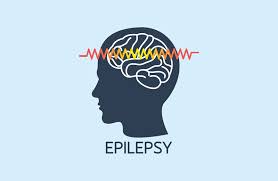
Neurologists and brain health advocates have dismissed the long-standing myth that persons living with epilepsy are under a spell, curse or spiritual attack.
In Nigeria, epilepsy is usually attributed to witchcraft attacks, demonic possession, destiny and heredity.
However, the experts, in separate interviews with PUNCH Healthwise, stated that epilepsy was a brain disease that had a traceable scientific cause.
The experts, speaking on the sidelines of the International Epilepsy Day, which is commemorated on the second Monday in February, called for an end to the stigma and unfounded myths associated with the disease and persons living with it.
It was celebrated on February 12 with the theme, “Milestones on My Epilepsy Journey.”
According to the World Health Organisation, epilepsy is the most common chronic brain disease that affects people of all ages.
America’s National Institute of Neurological Disorders and Stroke, notes that epilepsy is a brain disorder in which groups of nerve cells in the brain sometimes send the wrong signals and cause seizures.
The WHO stated that more than 50 million people globally have epilepsy and nearly 80 per cent of them live in low and middle-income countries.
The global health body, however, noted that 70 per cent of people living with epilepsy could be seizure-free if properly diagnosed and treated.
To celebrate IED, the Sub-Saharan Africa Brain Health Initiative in its Global Action for Brain Health Series, organised a virtual event themed, Epilepsy: Epidemiology, Language and Policy.
Speaking during the event, the co-founder of SSABHI, Laz Eze, stated that epilepsy was a brain health issue that affected all of the dimensions of brain health cognitive, mental, social, emotional, and physical components.
He clarified that epilepsy was not a psychiatric and mental health problem but a neurological disorder and brain health.
“So we need to rethink these disorders from the perspective of brain health. Even in the presence of a brain disease, like epilepsy, you can have brain health and you can promote brain health.
“The concept of Brain Health provides far greater opportunities for innovation research, and prevention. It also enhances interdisciplinary work and learning and has the potential to reduce stigma and exclusion.
“So, the word epilepsy, I would say, reframing and rethinking epilepsy for prospective brain health is very powerful. It’s very possible to think about how we can address the social, emotional, mental, and cognitive impacts of epilepsy that are impacting people who are living with this condition of their quality of life. It also allows us to think about the potential for prevention,” Eze said.
Commenting on the issue, a professor of Clinical Neurology and Internal Medicine at the University of Nigeria, Nsukka, Enugu State, Ikenna Onwuekwe, debunked claims that epilepsy was as a result of witchcraft or ancestral curses, spiritual problems or attacks.
He asserted that epilepsy was a disease that affected the brain and had clear causes.
Onwuekwe also said that although epilepsy was preventable and treatable, it was also a genetic condition that could be inherited.
The don added, “Some causes of epilepsy are due to genetic causes. These types usually appear as epilepsy syndromes because they are also associated with other complications like learning difficulty, intellectual decline or other organ abnormalities such as skeletal shape etc. Such genetic abnormality-associated epilepsy is often passed down to offspring and hence hereditary. Most causes of epilepsy are not normal genetic and are often preventable or treatable such as meningitis.
“In many cases of epilepsy, at least 70 per cent are so responsive to medical treatment that they can be taken off medications and remain seizure-free for life. About 30 per cent will need to be on maintenance medications to enable them to live a near normal life as much as possible.”
Speaking on the popular myth that epilepsy was communicable, Onwuekwe said, “Epilepsy is not a communicable disease. It cannot be contracted by touching a person or by contact with body fluids.”
Onwuekwe, who is a researcher in Stroke/Vascular Neurology and Epilepsy, said that a difficult pregnancy and childbirth, lack of access to routine immunisations, newborn infections and inflammations were some causes of childhood epilepsy.
The neurologist noted, “Many cases of epilepsy can be prevented especially those cases due to babies being born in difficult pregnancy and labour settings due to either ignorance or lack of suitable maternal and child health services that permit safe pregnancy, safe deliveries, proper care of the newborn, adequate nutrition for mother and child as well as access to routine immunisations. Perinatal causes of epilepsy due to maternal or newborn infections/inflammations and birth trauma are major causes of epilepsy in children which persist into adult life.
“Some cases of epilepsy, called benign types of epilepsy, may be limited to childhood and not be present in adulthood.”
He, however, stated that epilepsy in children could give rise to complications that may persist or manifest later in life.
The don also noted that although a few seizure types could be outgrown, not every epilepsy seizure type can be outgrown with age.
He advised individuals around persons having epileptic seizures to “get the person to be free and safe from dangerous nearby objects. Remove any tie or piece of clothing that is threatening the airway and lie the individual in a semi-prone position with the head face down and supported on a soft material.
“Do not allow a crowd around him or her as this may reduce good quality air supply for breathing. Call the Emergency line or make arrangements to take the individual to a nearby hospital where proper medical attention can be given.
“The individual’s personal belongings are often at this stage best safeguarded to prevent theft or damage. Most seizures begin and end within 5 minutes, though they may be recurrent.”
Also speaking on International Epilepsy Day, Onwuekwe said that people living with epilepsy can have normal and fun-filled lives.
“Children and adults with epilepsy need not suffer stigma or discrimination. Ignorance is the enemy while information is key. Remember that epilepsy is not due to witchcraft or village people and has nothing to do with marine spirits or ancestral curses. Also, know that epilepsy is not infectious and cannot be transmitted by physical contact or body fluids. Our pastors and clerics should be enlightened to stop spreading such nonsense. Support and love people living with epilepsy. Bring your family members and friends who you suspect have epilepsy to the Neurologist for care. Bring epilepsy out of the shadows!” the neurologist strongly stated.
Also, a Prof of Neurology at Ahmadu Bello University, Kaduna, Onyeadumarakwe Obiako, noted that epilepsy, like stroke and Parkinson’s, was a disease of the brain and not a spiritual disease.
He also noted while epilepsy could be a familial trait, the majority of the cases were due to brain injury.
The don said, “Epilepsy is a disease of the brain just like stroke, Parkinson etc, so it is not a spiritual disease. However, since the brain houses the spirit of the body, diseases of the brain can be said to be spiritual.
“Some are familial (grandmal) while the majority is due to brain injury (focal epilepsy).”
Obiako, who is also a researcher on stroke & epilepsy, noted epilepsy was not curable, stating that most of the time, treatment was for life.
To further reduce the incidence of crisis, the neurologist urged persons living with epilepsy to regularly take antiepileptic drugs.
Obiako further dismissed popular claims that the spittle or foamy secretions from epileptic patients during their crisis could infect people close by with the condition.
He added, “It is not a communicable disease, because it is not an infection and has no vector. It can start from childhood if the child suffers brain injury in the uterus or from birth or after birth and can be prevented if the brain is protected and injury is prevented.
“Once brain injury leads to epilepsy, it cannot be outgrown, although there could be some remission for years with regular treatment.”














